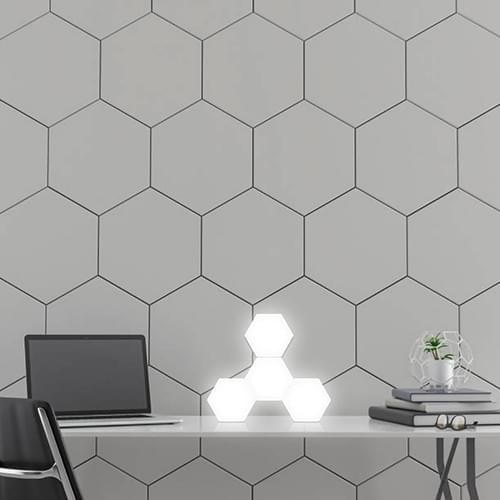Not all lighting is made equal, and it’s widely understood that a scheme of general lighting and nothing else is not only inadequate but also far too harsh. A layered lighting scheme – using a variety of light sources – is the best way to light a home where lighting must be sufficient for needs but not glaring. Because of this, table lamps are an absolute essential element of any well-lit space.
And thankfully, it’s not all about function – their double dose of effectiveness comes in the form of style as well. These moveable luminaires are as important to a space as any other tabletop accessories.
Table lamps come in a variety of materials from the more traditional (ceramic and glass) to contemporary (metal and acrylic). Wood, alabaster, selenite and faux shagreen are also becoming increasingly popular.
2. TABLE LAMP STYLESStyles range from the ever-stylish gourd shape (as seen above, far left) to sculptural statement pieces (think faux coral and urchin starbursts) and even designs embellished with petrified wood or agate slices.
3. TABLE LAMP SHADESWhen it comes to shades, the most common contemporary shapes are drum, empire and rectangle; traditional shapes include box pleat, bell and pagoda. The most common shade materials are paper, silk and linen. A coloured or metallic inner is often used to influence the warmth of the light emitted. This is important if you are looking to counteract the natural light of your room with artificial lighting.
1) Make sure to conceal any unsightly cables. This can be done by tucking them away or taping/stapling them to an unseen part of your furniture piece – designers often secure cables to table legs to maintain tidiness.
2) Although not always considered task lighting, table lamps often are used for specific purposes which will require different bulb specifications. These days, brightness is most accurately measured in lumens – not wattage. If you plan to use your lamp in a reading nook or on a desk, opt for a brighter light (around 50 lumens); for bedrooms or creating an atmospheric environment, try a subtler light (around 30 watts).
3) A dimmer function goes a step further and allows you to control the amount of light from each lamp exactly when you need it. Consider this when planning your lighting scheme at the beginning.
4) Always consider your table lamps when choosing accessories and ensure that any pieces will create a complementary display.
5) Mixing lamps is most definitely allowed – especially if your room’s style leans towards eclectic – but try to keep bedside table lamps or sideboard and console table lamps (often called buffet lamps) the same.
6) Care for them as you would other accessories or ornaments, dusting and treating any metal, wood or glass where appropriate.
Table lamps are one of the most widely used lighting options because they can be used in just about every room. Our top three spots for a table lamp are:
1. IN THE HALLWAYA console table is a hallway staple and a luxury table lamp makes the perfect partner. Not only do they provide light for those moments when you really need them – we’ve all had the experience of lost keys – they add interest to an often unsung space.
2. ON A SIDE TABLELighting schemes are often rounded off by a layer of lighting around eye level so a table lamp on a side table is a great option, particularly in a living room or sitting area. They offer a flattering pool of light which counteracts unflattering shadows from general lighting and often act as the invisible boundaries of an intimate seating area.
3. ON A BEDSIDE TABLEWhen is subtle lighting more needed than at bedtime? A carefully chosen bedside table lamp will create a calming, romantic mood. Bedside table lamps shouldn’t feel overwhelming though so, unless your furniture is really on the grand scale, choose a smaller design than one you would choose for a living room or hallway.
These are just three classic spots but, when placing table lamps, think about where your home needs that little bit extra light. These transportable designs can be used in a variety of settings.


